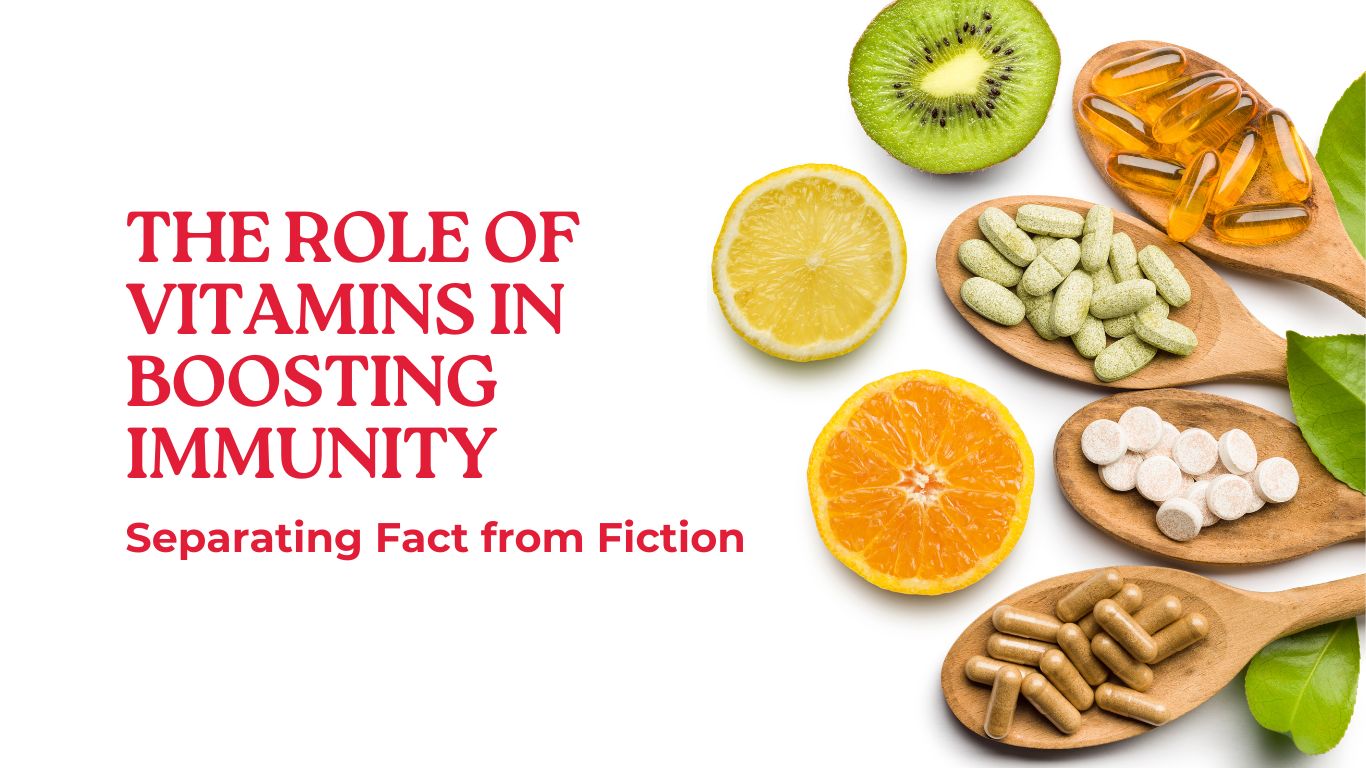In the quest for optimal health, especially in times when immune system support is more critical than ever, vitamins stand out as both heroes and subjects of controversy. With so much information available, it’s crucial to differentiate between the scientifically proven benefits and the myths surrounding vitamins’ role in enhancing immunity.
Understanding Immunity and Vitamins
Our immune system is a complex network of cells, tissues, and organs that work in unison to defend the body against infections and diseases. Vitamins, as part of a well-balanced diet, play a vital role in supporting this defense mechanism. But which vitamins are truly beneficial for our immunity, and how do they help?
Vitamin C: The Immune Booster
Vitamin C is often the go-to nutrient for immune support. Found in citrus fruits, bell peppers, strawberries, and broccoli, it aids in the production of white blood cells, crucial for fighting infections. Despite popular belief, while vitamin C can reduce the duration of cold symptoms, it’s not a foolproof preventive measure. Incorporating vitamin C-rich foods into your diet is advisable for general health, but expecting it to act as a barrier against all viruses is a fiction.
Vitamin D: The Sunlight Vitamin
Vitamin D, synthesized in our skin in response to sunlight and available in foods like fatty fish, mushrooms, and fortified products, is essential for immune function. Research indicates that low vitamin D levels are associated with an increased risk of respiratory diseases. Supplementing with vitamin D can be particularly beneficial in regions with long winters or for individuals with limited sun exposure, making it a fact in the immune-supporting vitamins narrative.
Vitamin E: The Antioxidant Powerhouse
As a powerful antioxidant, Vitamin E helps combat oxidative stress, which is linked to the impairment of the immune response. Nuts, seeds, and spinach are excellent sources of vitamin E, making them valuable additions to a diet aimed at bolstering immune health.
Zinc: More Than Just a Vitamin
While not a vitamin, zinc is worth mentioning for its critical role in immune function. Zinc deficiency is known to impair immune responses. Therefore, ensuring adequate zinc intake through meat, dairy, nuts, and seeds is essential for maintaining a robust immune system.
Separating Fact from Fiction
It’s important to approach the idea of vitamins as immune boosters with a balanced perspective. No single vitamin or supplement can offer complete protection against viruses and diseases. A holistic approach involving a balanced diet, regular exercise, adequate sleep, and stress management is crucial for optimal immune function.
Moreover, excessive intake of certain vitamins, particularly in supplement form, can be harmful. It’s always best to obtain nutrients from food sources, where possible, and consult healthcare professionals before starting any supplement regimen, especially if you have underlying health conditions.

